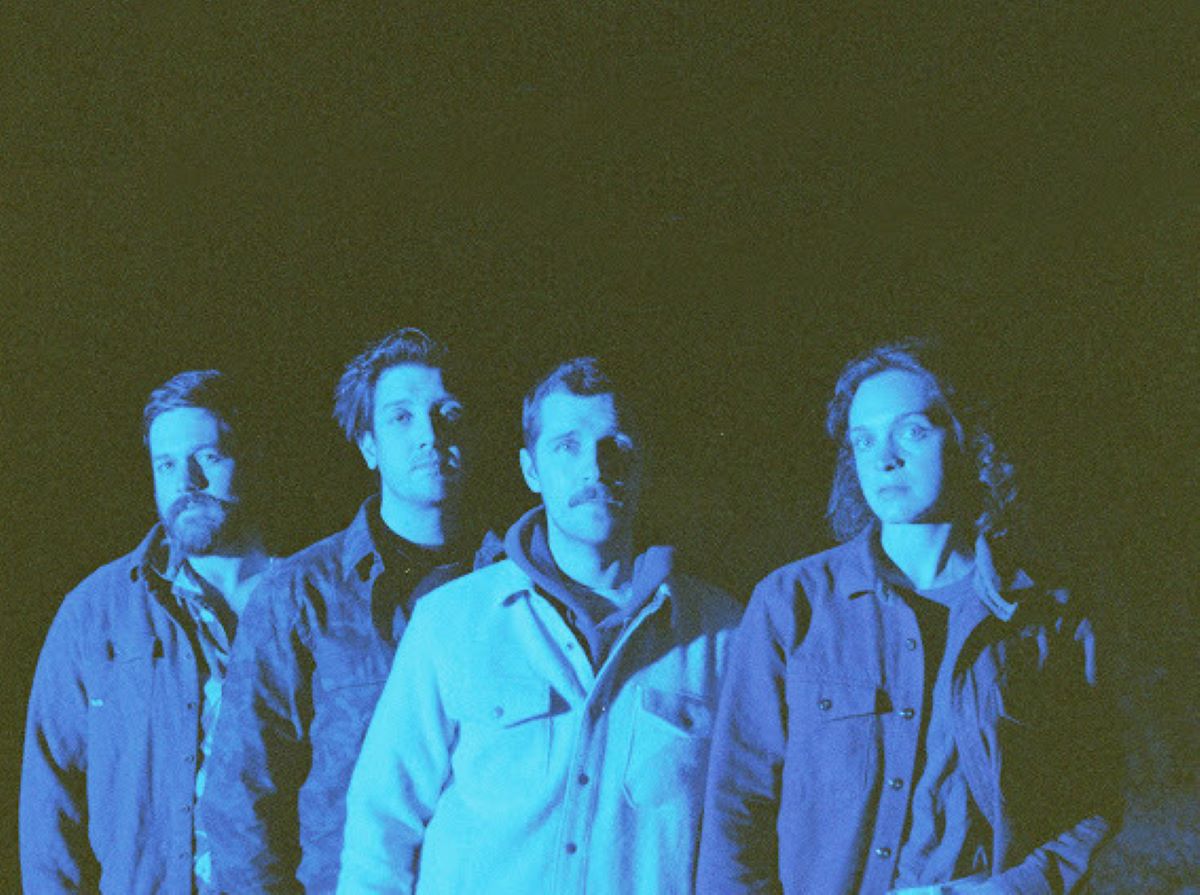
Tell us about your tour vehicle. Any notable breakdown stories?
We tour in a Ford Transit – HD350. In its previous life it was an airport shuttle bus. We got it cheap in Chicago, Wood drove it home, and we’ve basically been trying our best to ride it into the ground since.
Wood and Joseph did some custom build outs last year, it has shelving and suits are current packing job pretty perfectly. But it’s much less reliable than we wish… Luckily we have a great mechanic in Chapel Hill who has become a friend and takes care of us. Unluckily, it seems we are always out of town when something goes wrong. We’ve blown tires on a trailer at 1 a.m. in rural Oklahoma, spent entire days off at tire centers, there are warning lights that are constantly on that we greet like an old friend at this point.
How do you eat cheaply and/or healthy while on tour?
It’s hard. And the longer we do this, the more important eating healthy and exercising has become. I get a little obsessed thinking about and searching for our next meal on the road – and I’m thankful my bandmates are most often down for a little detour for something more unique. And also, we each travel with our fair share of favorite snacks, Aeropress coffee makers, and loose leaf teas.
How many strings do you break in a typical year? How much does it cost to replace them?
I break very few strings a year. Probably 2 in total. But I change out my strings fairly frequently when we are touring or recording. Every 10 days on the mandolin, once a month on my acoustic. When I’m home I let things stretch out a bit further. I’m still working through an old string sponsorship for my mandolin, and have an alert set online for when my favorite guitar strings go on sale.
Where do you rehearse?
The band typically rehearses in Chapel Hill before tours. Our spot has changed over the years, but I think Joseph’s new house in the country south of town will be the long-term go to. When I’m home in Los Angeles I play guitar and write a little bit outside on our patio in the mornings, and have a backhouse rehearsal space that I use more regularly during the day and at night. Nothing fancy, but it sounds good and is a good home for my instruments – I like having a space removed from the house, and I’m trying to practice more frequently with my phone out of sight.
Describe your first gig.
I played my first gig with my older brother. An open mic at the upstairs bar at the Greek restaurant in my little hometown. We played a Ryan Adams and Avett Brothers song. And “Ophelia” by The Band. I was so nervous my knee wouldn’t stop wobbling and we didn’t sound that great – but I was hooked.
What was your last day job? What was your favorite day job?
I’ve always loved wine – how it’s made and where it’s made and the stories that wine can tell. I think of food, wine and music as having a lot in common. Before the band started, I worked as a winemaker for a year and thought that’d be my life. But the band happily pulled me in a different direction.
When Covid hit I finally had more time and space to dive more deeply back into wine world and now I am the director of sales in California for Terrestrial Wine. We import natural wines from France. All biodynamically farmed, small production and minimal intervention – and made by people I know and believe in. I love getting to tell their stories and share their wines with my favorite spots to eat and drink in California.
How has your music-related income changed over the past 5-10 years? What do you expect it to look like 5-10 years from now?
I’m pretty cynical about the nature the music industry and the direction I think it’s heading. When we started, deals from venues were less laden with superfluous expenses and music fans were happy to pay a fair price for the art they wanted to have in their life. And the most important thing as a young artist was writing a good song and creating a meaningful in-person connection with the people who connected with those songs.
The industry since is set on devaluing recorded music, siphons more money than ever before from the artists pockets, and preaches that the main way to grow is to create a content-farm that can be harvested on as many platforms as possible. There are many positive aspects of that. It’s easier to reach a wider audience without having to tour constantly, it’s cheaper and easier to make a recording that sounds amazing and that benefits so many artists, and there is something cool about the democratic nature of virality for sure. We make more money than we used to, and there are more streams to monetize. But I feel worse about a lot of the ways we make money than I used to. And when I think about the nest 5-10 years it’s hard not to imagine that being a larger factor. It bums me out.
What one thing do you know now that you had wished you knew when you started your career in music?
I wish I had more quickly realized how rewarding it is when you lean further into your most true sense of self. Individually as a writer, musician and person – and collectively as a member of an open and fully-democratic band. The moments in our music and career where I feel like we most honestly reflected who we were are the times I’m most proud of.
